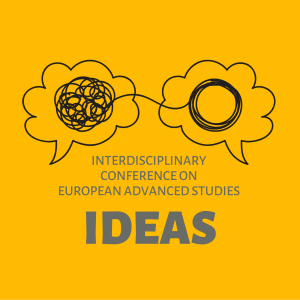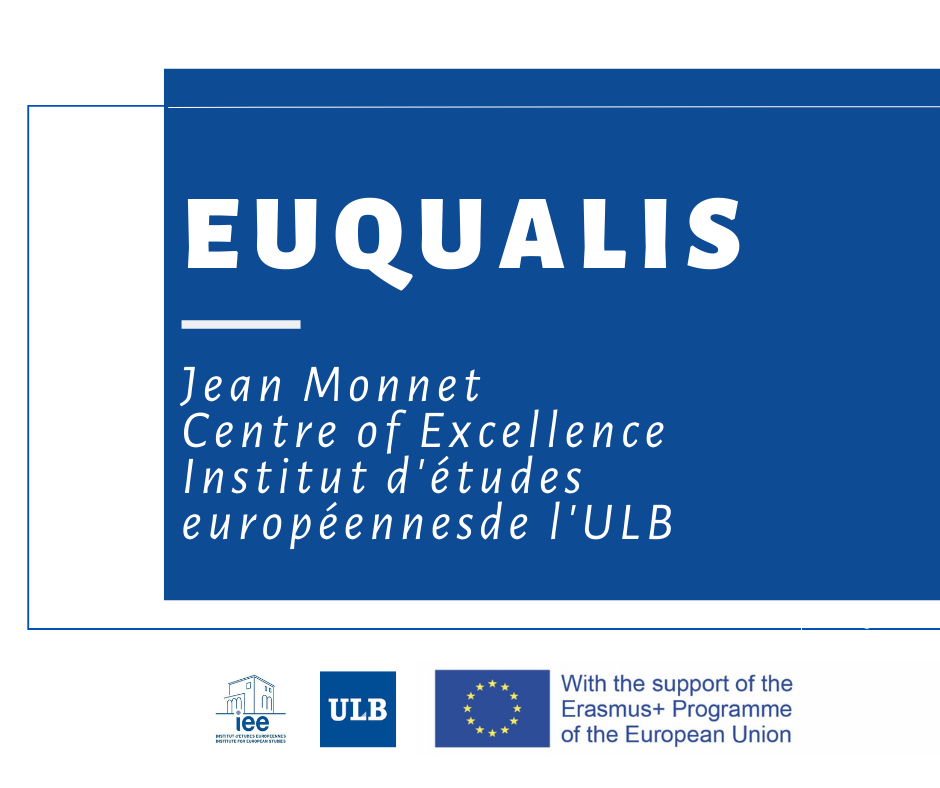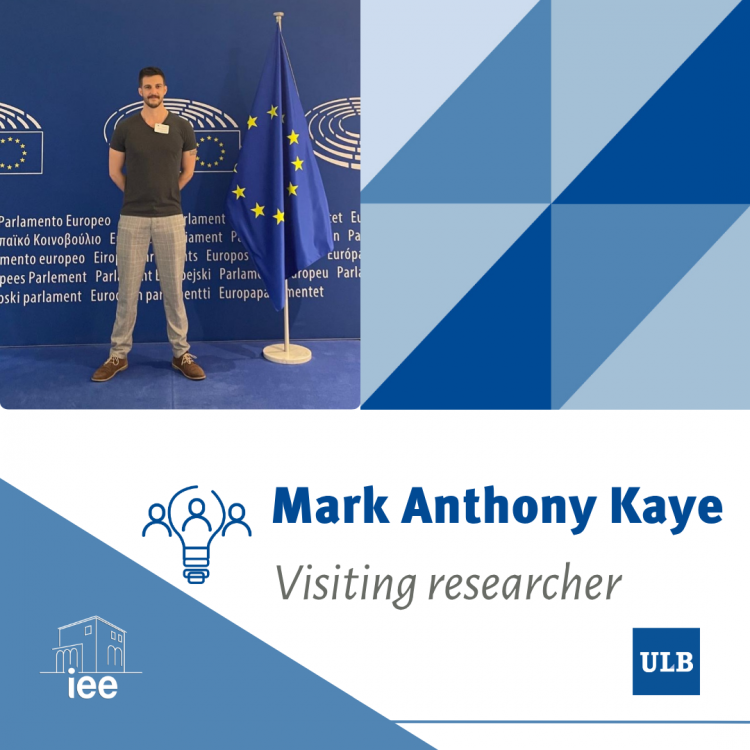The EUqualis Jean Monnet Centre of Excellence will focus on inequality and the EU
The Institute for European Studies is pleased to announce that its project focused on inequality in the European Union has been selected as “Jean Monnet Centre of Excellence” for the 2021-2024 period.
The project EUqualis, directly involving a dozen academics and researchers affiliated with the Institute, aims to investigate how the EU deals with the problem of inequalities among individuals, territories and states. It has been conceived using a bottom-up, interdisciplinary approach. The focus on inequality follows the previous work on European Solidarity and EU Crises produced at the IEE-ULB.
Inequality and the EU
Academic and policy debates surrounding ‘Inequality and the EU’ have gained momentum following the two subsequent economic recessions ensuing from the 2008 financial crisis and the ongoing COVID-19 pandemic. Increasingly, broader debates surrounding inequality, non-discrimination, and solidarity are homing in on the distinctive role of European governance. The role of the EU in these matters was recently highlighted in the conclusions of the UN Special Rapporteur on extreme poverty and human rights, Olivier De Schutter, stressing the importance of, for example, the European Commission’s Action Plan to implement the European Pillar of Social Rights. At the same time, the recent Social Summit in Porto showed that, politically, a more active role of the EU in social policy is far from enjoying unanimous support from national governments across Europe.
About the Jean Monnet Centre of Excellence on Inequality and the EU
Building on the success of the previous IEE Centre of Excellence dedicated to ‘European Solidarity’ (2016-2019), EUqualis will gather a substantial share of the academics and researchers affiliated with IEE around a shared teaching, training, and research agenda in European integration with a focus on ‘Inequality and the EU’.
By unpacking the challenges relating to various forms of inequality in direct connection with EU actions, EUqualis will simultaneously address a set of scientific, pedagogical, and societal needs.
Rooted in its focus on the politics, legislation, and case-law affecting equality across a range of policy areas involving the EU, EUqualis will both produce and facilitate access to innovative research in EU Studies.
The Centre’s three-year work plan will enable the ULB Institut d’Etudes européennes to further to stand out as one of the main competence and knowledge on the EU around the world by making a significant contribution to this crucial research agenda.
In the evaluation by peer researchers, the project obtained the outstanding score of 96.5/100. As of April 2022, EUqualis will involve a dozen colleagues affiliated with the IEE-ULB. The project’s principal investigator will be Prof. Amandine Crespy , whose research interests are focused on the politicization of EU integration in relation with socio-economic policies.
 Prof. Crespy is Associate Professor in Political Science and EU Studies and a researcher at Cevipol & Institut d’Etudes Européennes (IEE). She is also the Academic Coordinator for the ULB Master in European Studies and Visiting Professor at the College of Europe (Bruges).
Prof. Crespy is Associate Professor in Political Science and EU Studies and a researcher at Cevipol & Institut d’Etudes Européennes (IEE). She is also the Academic Coordinator for the ULB Master in European Studies and Visiting Professor at the College of Europe (Bruges).
EUqualis is structured along seven themes or work packages
- WP1 – Academic-led Open Research on ‘Inequality and the EU’
- WP 2 – Student-led Citizen Research on ‘Inequality and the EU’
- WP 3 – New Graduate Teaching on ‘Inequality and the EU’
- WP 4 – Intersectoral Training on ‘Inequality and the EU’
- WP 5 – EU Studies Open-Source Teaching Materials
- WP 6 – Dissemination, Communication & Visibility
- WP7 – Management, Quality Control & Ethics
The IDEAS conference: first event of the JMCE
 The Interdisciplinary conference on European Advanced Studies (IDEAS), foreseen to take place in May 2022, will be the first event hosted by the newly awarded Jean Monnet Centre of Excellence EUqualis. It will focus on “(Dis)integration from an (in)equality perspective”.
The Interdisciplinary conference on European Advanced Studies (IDEAS), foreseen to take place in May 2022, will be the first event hosted by the newly awarded Jean Monnet Centre of Excellence EUqualis. It will focus on “(Dis)integration from an (in)equality perspective”.
The biennial Interdisciplinary conference on European Advanced Studies (IDEAS) is a three-day scientific event organised by the Institut d’études européennes of the Université libre de Bruxelles (IEE-ULB) in collaboration with the Institute for European Studies of the Vrije Universiteit Brussel (IES-VUB) and the Politics and International Studies Department at the University of Warwick (PaIS-UoW).




